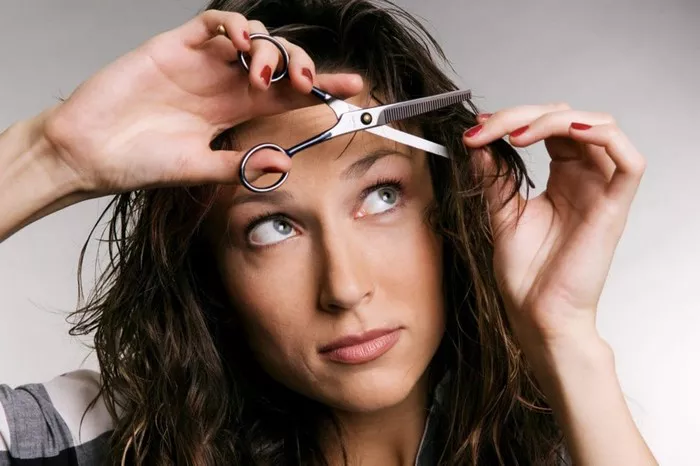Hair loss is often associated with aging, but it can occur at any stage of life, including adolescence. If you find yourself losing hair at the tender age of 16, it can be a cause for concern and curiosity. In this article, we will explore the potential reasons behind hair loss in teenagers and provide insights into possible causes and solutions.
1. Hormonal Changes and Imbalances
One of the primary reasons for hair loss in teenagers revolves around hormonal changes. Adolescence is a time of significant hormonal fluctuations as the body undergoes various transformations. An imbalance in hormones, particularly an excess of dihydrotestosterone (DHT), can lead to hair loss. DHT is a hormone derived from testosterone that can shrink hair follicles, making them produce thinner and shorter strands. Genetic factors can also play a role in the sensitivity of hair follicles to hormonal changes.
2. Nutritional Deficiencies
The teenage years are crucial for growth and development, and proper nutrition is vital during this period. A deficiency in essential nutrients such as iron, zinc, vitamin D, and biotin can impact the health of your hair. These nutrients play a crucial role in promoting hair growth and maintaining the strength of the hair shaft. Poor dietary habits, restrictive diets, or medical conditions that affect nutrient absorption can contribute to hair loss.
3. Stress and Emotional Well-being
Teenagers often experience stress due to academic pressures, social challenges, and the emotional rollercoaster that comes with adolescence. Chronic stress can lead to an increase in cortisol levels, which may negatively impact the hair growth cycle. Stress-induced hair loss, known as telogen effluvium, can result in the shedding of hair beyond the normal range. It’s essential to manage stress through healthy coping mechanisms such as exercise, relaxation techniques, and seeking support from friends or professionals.
4. Hairstyling Practices and Traction Alopecia
Excessive hairstyling practices, including tight hairstyles, heat styling, and chemical treatments, can contribute to hair loss. Traction alopecia is a type of hair loss caused by constant tension on the hair follicles. If you frequently pull your hair into tight ponytails, braids, or buns, it can lead to damage and eventual hair loss. Adopting gentle hairstyling practices and allowing your hair to rest from tight hairstyles can help prevent further damage.
5. Medical Conditions and Medications
Certain medical conditions and medications can contribute to hair loss in teenagers. Conditions such as alopecia areata, thyroid disorders, and polycystic ovary syndrome (PCOS) can affect the hair growth cycle. Additionally, medications used to treat various health issues may have hair loss as a side effect. If you suspect that a medical condition or medication may be causing your hair loss, it’s crucial to consult with a healthcare professional for proper diagnosis and guidance.
6. Genetic Predisposition
Genetics play a significant role in determining hair characteristics, including its susceptibility to thinning and loss. If there is a family history of early-onset hair loss, it increases the likelihood that genetics may be a contributing factor to your hair loss at 16. Understanding your family’s hair history can provide valuable insights into potential genetic influences on your hair health.
7. Hormonal Disorders and PCOS
Hormonal disorders, such as polycystic ovary syndrome (PCOS), can affect hormone levels and lead to hair loss. PCOS is a common condition that affects the ovaries and can cause an imbalance in hormones, including increased levels of androgens. These hormonal changes can impact the hair growth cycle and result in thinning or shedding. If you suspect a hormonal disorder may be at the root of your hair loss, seek guidance from a healthcare professional for proper diagnosis and management.
8. Healthy Habits for Hair Growth
While understanding the potential causes is crucial, adopting healthy habits can contribute to promoting hair growth and preventing further loss. Ensure that your diet is rich in a variety of nutrients, including fruits, vegetables, lean proteins, and whole grains. Consider consulting with a healthcare professional or a nutritionist to address any nutritional deficiencies.
9. Gentle Hair Care Practices
Adopting gentle hair care practices is essential to minimize damage and support a healthy scalp. Use mild shampoos and conditioners suitable for your hair type, and avoid excessive heat styling or chemical treatments. Choose hairstyles that do not place undue stress on your hair follicles, allowing your hair to grow without unnecessary tension.
10. Consultation with Healthcare Professionals
If hair loss persists or is causing significant distress, it’s crucial to consult with healthcare professionals. A dermatologist or a trichologist can assess your scalp and hair health, identify potential causes, and recommend appropriate treatments. They may conduct blood tests to check for nutritional deficiencies or hormonal imbalances, providing valuable insights into the underlying issues.
See Also: Prevent Hair Loss Now: A Vegan Guide
Conclusion: Navigating Hair Loss with Knowledge and Care
Experiencing hair loss at 16 can be a perplexing and challenging situation, but with knowledge and proactive steps, it’s possible to address and manage the issue. Understanding the potential causes, adopting healthy habits, and seeking guidance from healthcare professionals are key steps toward promoting hair growth and restoring confidence. Remember that everyone’s hair journey is unique, and finding the right solutions may take time and patience. By approaching the situation with care and seeking professional advice, you can navigate the path to healthier and fuller hair.


